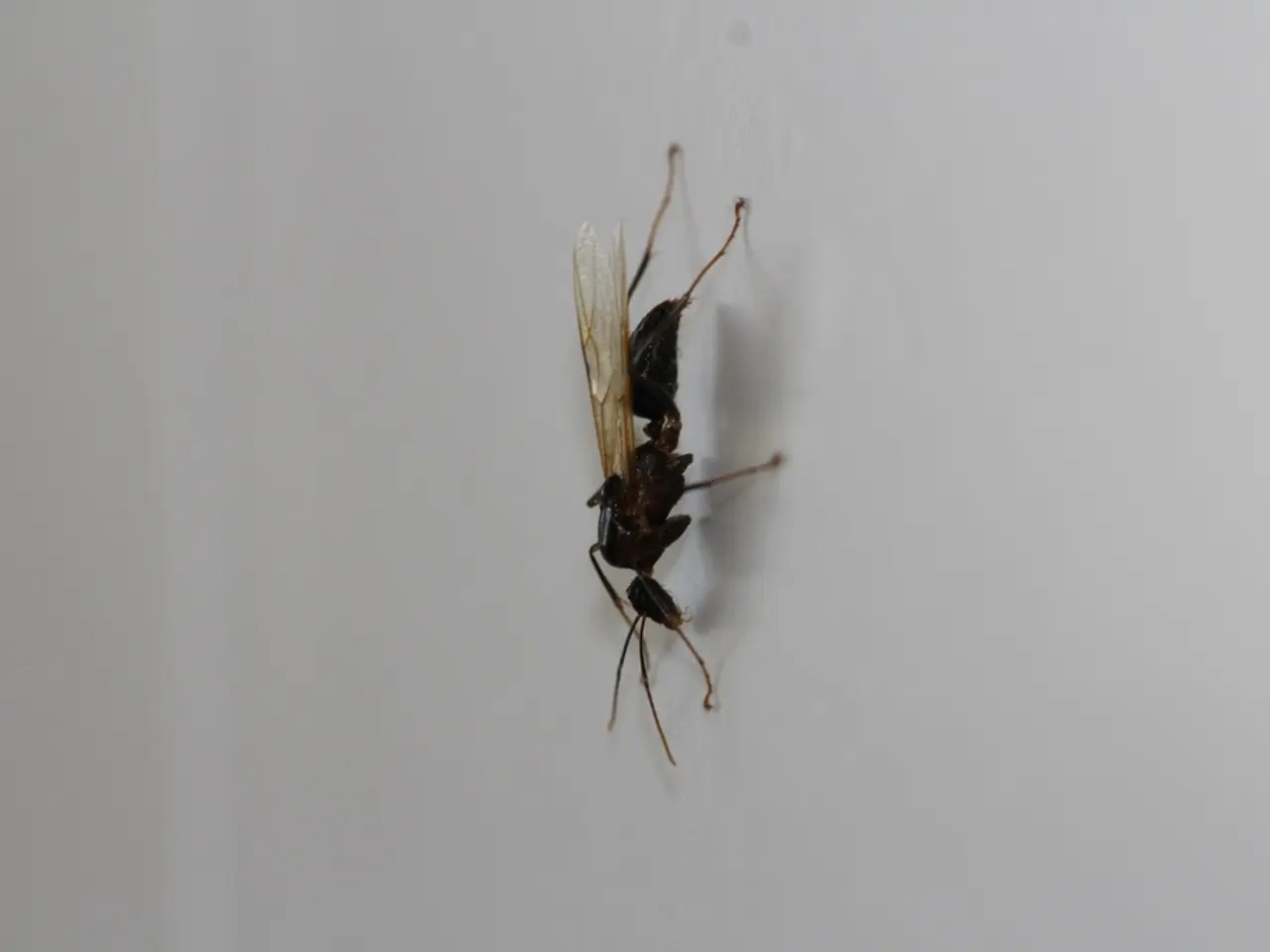Sighting of Asian hornet in Cork, Ireland serves as a warning
The Asian hornet, a dangerous predator to honey bees and other pollinators, has been causing concern in Ireland. Recently, a single Asian hornet was sighted in Dublin, but authorities are monitoring to determine if this is an isolated incident or part of a larger population.
This invasive species, known scientifically as Vespa velutina, has already made a significant impact on honey bee populations in other European regions. Capable of killing up to 50 honey bees per day, a single nest can decimate local honey bee populations. This predation threatens not only honey bee colonies but also native flora and agricultural crops, posing a risk to Ireland's biodiversity, food security, and ecosystem stability.
The Asian hornet, characterised by its mostly black and brown body with an orange face, orange abdomen, and yellow legs, is larger than common wasps and has far less bright yellow on its body. It is a natural predator for honey bees and other types of pollinators, and its potential to devastate essential honey bee populations is a cause for serious concern.
While the Asian hornet does not pose a significant health risk to humans, it is crucial that Irish citizens remain vigilant. If you spot an Asian hornet, do not attempt to capture it as it may sting if provoked. Instead, report any sightings to the National Biodiversity Data Centre's Alien Watch portal on their official website.
The Irish government is taking steps to control the spread of the Asian hornet. Rapid response protocols have been put in place by the National Parks and Wildlife Service, including the deployment of surveillance teams and traps around sighting areas. A multi-agency Asian Hornet Management Group has also been established to coordinate monitoring and response efforts.
Public awareness campaigns are urging citizens to monitor, photograph, and report sightings, emphasising the importance of not killing native pollinators by mistake. Traps are being set in proximity to confirmed sightings to capture more hornets and detect nests.
The spread of the Asian hornet in other European countries, such as France, has led to significant losses for beekeepers and millions of euros spent on protection measures. Despite these efforts, the hornet continues to cause severe damage.
In conclusion, the Asian hornet poses a serious and ongoing threat to Irish and European honey bee populations. Coordinated government and public vigilance is currently the primary strategy to limit its spread and minimise ecological and economic harm. Stay informed, stay vigilant, and report any sightings of the Asian hornet to help protect our essential pollinators.
[1] European Commission (2020). Asian Hornet (Vespa velutina). Retrieved from https://ec.europa.eu/food/plant/biosecurity/pests/asian-hornet_en [2] National Parks and Wildlife Service (2021). Asian Hornet (Vespa velutina). Retrieved from https://www.npws.ie/wildlifenews/asian-hornet-vespa-velutina/ [3] National Biodiversity Data Centre (2021). Asian Hornet. Retrieved from https://www.biodiversityireland.ie/species/asian-hornet-vespa-velutina/ [4] Invasive Species Ireland (2021). Asian Hornet. Retrieved from https://invasivespeciesireland.com/species/asian-hornet/ [5] Food and Environment Research Agency (2020). Asian Hornet. Retrieved from https://www.gov.uk/government/publications/asian-hornet-vespa-velutina-nigricans/asian-hornet-vespa-velutina-nigricans
[1] The growing concern over the Asian hornet's impact on health-and-wellness, including honey bee populations and agricultural crops, necessitates continued surveillance and reporting by the public and environmental-science experts alike.
[2] In the arena of fitness-and-exercise, one might argue that the European honey bee serves as an unsung hero, pollinating various plants crucial for human nutrition and well-being, making it imperative to safeguard their health through effective management of invasive predators like the Asian hornet.




